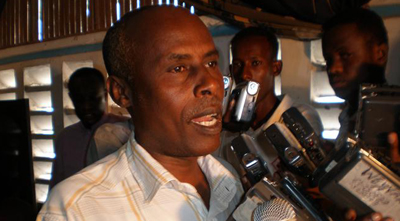
Evacuating Somali reporters who face unrelenting violence
Somalia was among the world’s deadliest countries for journalists in 2009, the year I began working with CPJ’s Journalist Assistance program. On June 7, two gunmen shot Mukhtar Mohamed Hirabe and Ahmed Omar Hashi, the director and news editor of the country’s leading independent station, Radio Shabelle. Hirabe died at the scene. Hashi barely survived…
Death threats force Colombian reporter to relocate
I was on assignment in a slum in the town of Aguachica, Cesar Province, on February 24 when gunmen cut me off and threatened to kill me. “Journalist, shut up or die,” said one of the men, who identified themselves as members of “Los Urabeños,” a criminal gang that operates in Cesar and neighboring provinces.…
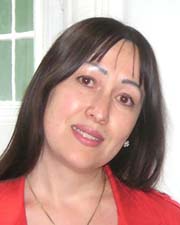
Surviving, thriving in exile: Q&A with Dina Yafasova
In September 2001, CPJ received a worrisome call. Uzbek journalist Dina Yafasova had been roughly interrogated by the Uzbek National Security Service, which threatened her with imminent arrest and physical abuse unless she revealed sources and names of articles she wrote for international publications. She left the agency deeply shaken and within days had left…
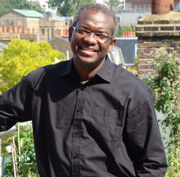
In exile: From a Cameroonian jail to immigration limbo
I was arbitrary and unlawfully arrested and detained in a heavily secured military police detention facility in Cameroon for 40 days. I had to bribe my way out of the country to seek sanctuary and protection. Cameroon is a dictatorship dressed up as a fake democracy, with a leader in power for more than 29 years. As…
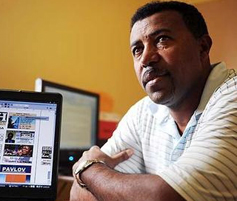
CPJ’s exiled journalists survey: Behind the numbers
In 2007, my colleague Karen Phillips suggested we do something to mark World Refugee Day. Initially planning to publish a brief statement, I set about reviewing our data for background, checking in with older journalist cases about their current situation and looking broadly for trends to highlight. As the number of cases began counting into…
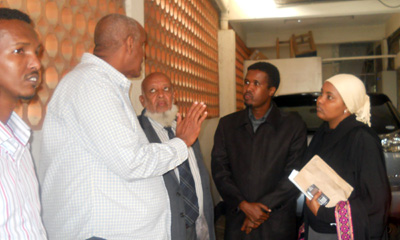
Exiled Somali journalists rally around wounded colleague
Hassan Mohamed, nicknamed “Jaeyl” by his colleagues, used to be a jack-of-all-trades for Somalia’s first independent broadcaster, HornAfrik. He was a journalist, a producer, and a librarian. He was even a dramatist. His most powerful professional role was keeping HornAfrik running when most senior staff members fled the country, fearing for their lives.
Video: ‘Living in silence: Journalists in exile’
We write a lot at CPJ about the terrible things that happen to journalists because of their reporting, but we don’t often get a chance to show you what happens to them after they are forced to flee their homes and land abroad. This video, about three such journalists, is worth watching.
Media owners prosecuted, forced out of Kyrgyzstan
New York, May 13, 2011–The Committee to Protect Journalists called on Kyrgyz authorities today to drop trumped-up criminal charges against the founder and director of the largest regional television channel, Osh TV, and the founder, owner, and director of three now-defunct media outlets–the independent broadcaster Mezon TV, and newspapers Itogi Nedeli and Portfel.
Bahrain detains columnist; 4 located in Libya
New York, April 25, 2011–The Committee to Protect Journalists called on Bahraini authorities to disclose the whereabouts of Haidar Mohammed al-Nuaimi, a columnist for daily newspaper Al-Wasat. Roughly 30 uniformed and plainclothes police raided al-Nuaimi’s family home in Manama today, dragging him into the street and beating him, local journalists told CPJ.
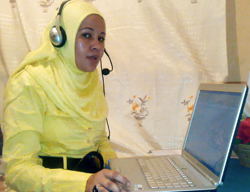
A Somali journalist still gets taunting threats in exile
It was February 2008 when Bahjo Mohamud Abdi received her first anonymous phone call. It was a man’s voice asking her to confirm who she was. Abdi was a presenter and correspondent for the state radio in Somalia’s semi-autonomous region of Puntland. Abdi confirmed her identity and thought no more about it. But then she…